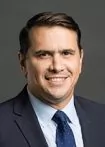Two attorneys with Cadwalader, Wickersham & Taft LLP explain that with the government placing more emphasis on holding individuals responsible for corporate wrongdoing, unique styles and approaches to interviews with prosecutors are a necessity.
Investigating corporate misconduct and bringing to justice individuals responsible for those misdeeds has always been a priority for government attorneys.
But following a September 2015 memorandum issued by Sally Yates, the then-deputy attorney general at the Department of Justice, titled "Individual Accountability for Corporate Wrongdoing" and otherwise known as the "Yates Memo," government attorneys have shown renewed interest in prosecuting individuals for corporate wrongdoing.
The Yates Memo states that "[o]ne of the most effective ways to combat corporate misconduct is by seeking accountability from the individuals who perpetrated the wrongdoing," and that civil and criminal corporate investigations "should focus on individual wrongdoing from the very beginning... ." Accordingly, prosecutors, in the midst of a corporate investigation, have emphasized interviewing individuals to determine who is responsible for the company's misconduct. This is a trend that will likely continue.
In our experience in government and private practice, we have developed unique styles and approaches to government interviews.
There are, however, some consistent themes worth remembering any time you are preparing a witness to meet with a government attorney. These themes are basic but important:
- ensure that your client is prepared, credible, and comfortable,
- understand the government's view of the interviewee's "position" as either a witness, target, or subject,
- find out which agency or prosecutors' office is investigating, and
- determine the quantity and quality of information that the prosecutors have.
Goal Setting: Preparation, Credibility, and Comfortability
When defense counsel is retained to represent a current or former company employee for a government interview as part of an investigation into corporate misconduct, counsel's goals are typically modest: the interviewee must be prepared, credible, and comfortable. To make sure that the interviewee is prepared, ask the government attorneys if your client has liability and if he is a witness, target, or subject of their investigation. Also, request relevant documents from company counsel, confer with company counsel for insight into the government's case and potential individual targets (but beware of any conflicts of interests that may arise if the company's and the witness's interests stray—after all, that is why you were retained in the first place), ensure that you go through all potentially incriminating issues and documents with the individual, and spend time educating your client on the setting and timing of the interview.
To build credibility with the prosecutors who will be conducting the interview, understand which agency is investigating and why (is it in response to a whistleblower, an audit, or self-reporting by the company?), and most importantly, communicate with the government attorneys to establish trust. Also consider contacting the prosecutors early to build goodwill. But before calling the government attorneys and offering information, defense counsel must fully understand the interviewee's role in the conduct being investigated, assess if there are others who can implicate the interviewee, and evaluate the overall strength of the government's case.
If your client is a fact witness with no obvious exposure, the best course will typically be for your client to request a meeting with the government and cooperate in the investigation's early stages. There is relatively little risk for a cooperating witness in this position because he has no exposure and saying what he knows will keep him firmly in the "witness" camp. The opposite is true, too: a witness facing evidence that puts him at the center of the misconduct should consider cooperating early and often. But that assumes the government wants to talk to your client and will independently have enough evidence to charge your client if you remain on the sidelines. If you do decide to take your client in early, make sure he is prepared to be completely truthful. The government will spend considerable time after meeting with your client corroborating information provided and chasing down new leads discovered from your meeting. Incomplete information, bad facts, or facts contradicted by another cooperating witness might de-rail the government's investigation and lead the government attorneys to question you and your client's credibility and reliability.
As for making the interviewee comfortable, inquire about his background—both personally and professionally—to build a productive relationship with your client and to maintain open lines of communication, make sure your client knows it is okay that mistakes were made, ensure that he is comfortable talking about others at the company, and review emails and files to help the interviewee recall and clarify information.
Preparation, credibility, and comfortability all amount to keeping the witness intact, strong and sturdy leading up to and during the government interview.
To view the full article please click here.
Originally published in The Bureau of National Affairs, Inc.
The content of this article is intended to provide a general guide to the subject matter. Specialist advice should be sought about your specific circumstances.


